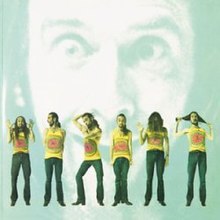Background and legacy
When asked in the January 1982 issue of Playboy if any of his albums had been done during a heavy cocaine period, Carlin said, "The Class Clown album was done totally sober. I'd realized what a hell I'd made for myself and I cleaned up completely for three months. You can hear the clarity of my thinking and of my speech on that album. But by the next one, Occupation: Foole, I was right back into the trip again. I'm more frantic, more breathless. You can hear how sick I am. If you want to see a cokehead, just look at the pictures on the Occupation: Foole album. The angles of my body show you an awful lot. I started doing coke to feel open but by that time the hole had opened so wide that I'd fallen through. The body language in those photos tells you everything." [2]
During the performance of his "Filthy Words" routine Carlin was handed a piece of paper by a stage hand, and after reading the paper announced that he had just won the 1973 Grammy Award for Best Comedy Recording for his FM & AM release. The Grammy Awards were being broadcast at the same time he was on stage, and he had not attended because he was contracted to perform the concert which became Occupation Foole on the same night.
The "Filthy Words" routine also became the subject of a complaint made to the United States Federal Communications Commission after it was broadcast uncensored on New York City radio station WBAI on October 30, 1973. Following the lodging of a complaint, the FCC proceeded to ask Pacifica, the owners of WBAI, for a response, then issued a declaratory order upholding the complaint. No specific sanctions were included in the order but WBAI was put on notice that "in the event subsequent complaints are received, the Commission will then decide whether it should utilize any of the available sanctions it has been granted by Congress." Pacifica appealed this decision, which ultimately made its way to the Supreme Court of the United States. In Federal Communications Commission v. Pacifica Foundation, the Court declared that the FCC has the authority to prohibit broadcasts containing indecent language during hours in which children could be listening. [3]
This page is based on this
Wikipedia article Text is available under the
CC BY-SA 4.0 license; additional terms may apply.
Images, videos and audio are available under their respective licenses.
